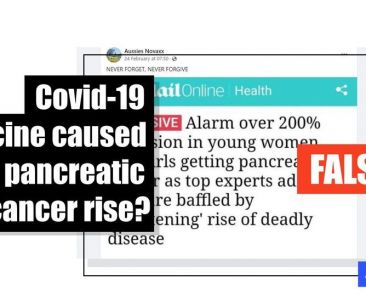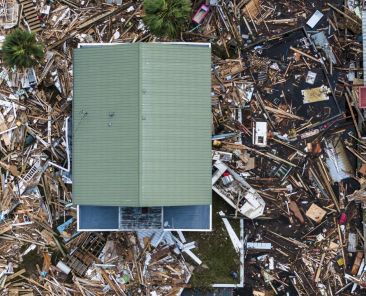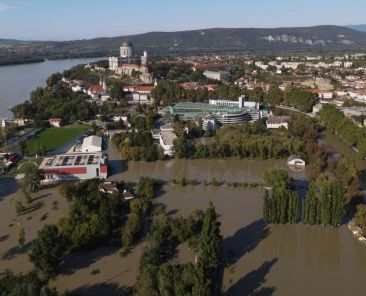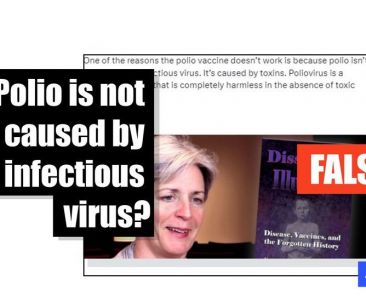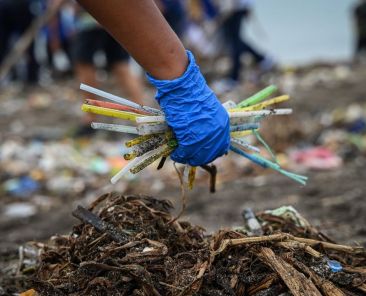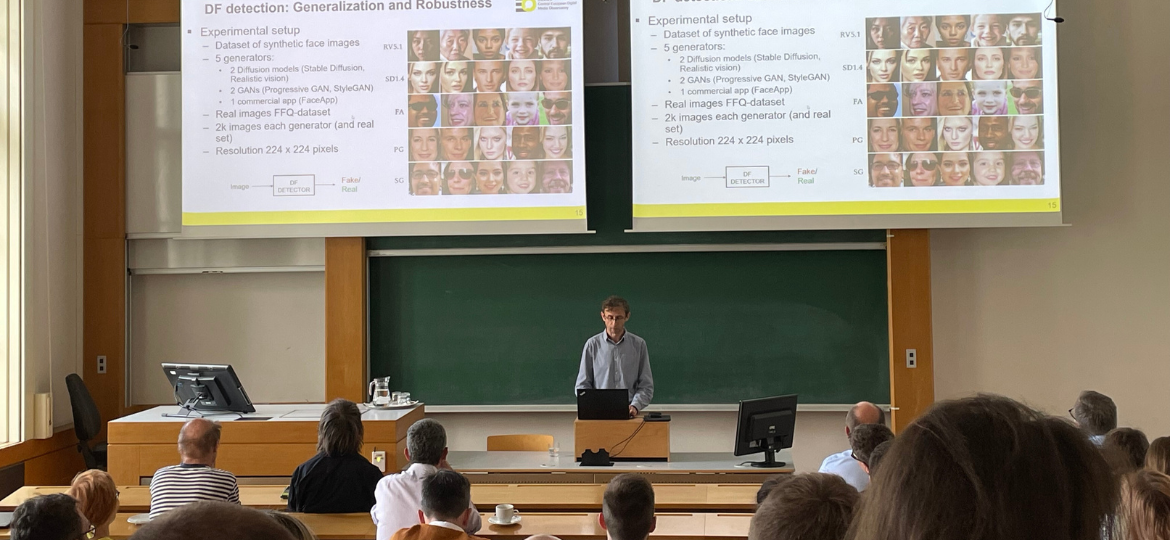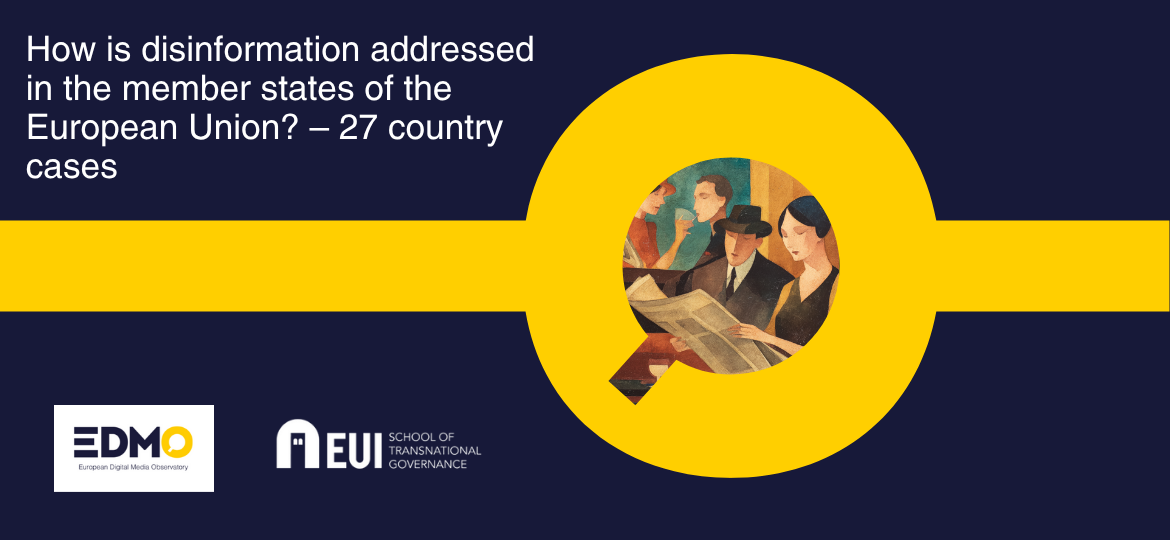About CEDMO
The Central European Digital Media Observatory (CEDMO), as an independent non-partisan multidisciplinary hub, aims to identify, research and prioritise the most critical sources and causes of information disorders in Central Europe (mainly the Czech Republic, Slovakia and Poland). This international consortium was created to propose a set of short and longer-term actions, as well as recommendations to help civil society, public institutions and the private sector respond to the declining trust in key institutions and help society to resist the effect of increasing exposure to mis- and disinformation.
By interacting and coordinating with European Digital Media Observatory (EDMO) and other regional EDMO hubs in EU, CEDMO will contribute to curbing threats posed by information disorders, including disenchantment with the democratic processes, and discord in civil society in Europe, and to building community and nation-wide resilience while protecting information ecosystems.
About CEDMO
The Central European Digital Media Observatory (CEDMO), as an independent non-partisan multidisciplinary hub, aims to identify, research and prioritise the most critical sources and causes of information disorders in Central Europe (mainly the Czech Republic, Slovakia and Poland). This international consortium was created to propose a set of short and longer-term actions, as well as recommendations to help civil society, public institutions and the private sector respond to the declining trust in key institutions and help society to resist the effect of increasing exposure to mis- and disinformation.
Our Partners
About CEDMO
The Central European Digital Media Observatory (CEDMO), as an independent non-partisan multidisciplinary hub, aims to identify, research and prioritise the most critical sources and causes of information disorders in Central Europe (mainly the Czech Republic, Slovakia and Poland). This international consortium was created to propose a set of short and longer-term actions, as well as recommendations to help civil society, public institutions and the private sector respond to the declining trust in key institutions and help society to resist the effect of increasing exposure to mis- and disinformation.
Our Partners
A Facebook page called “Aussies Novaxx” posted a screenshot of the MailOnline article from February 23, which is headlined: “Alarm over 200% explosion in young women and girls getting pancreatic cancer as top experts admit they are baffled by ‘frightening’ rise of deadly disease” (archived link).
“Netanyahu is infected with a mutated strain of coronavirus,” reads Thai-language superimposed text in this TikTok video that featured the doctored photo of a masked Netanyahu lying on a hospital bed.
“Scientists found MASSIVE increased risks of developing several serious health conditions post-jab,” claims a February 23, 2024 Facebook post with a video of Del Bigtree, head of one of the best-funded anti-vaccine organizations in the United States.
“Bitcoin mining has zero carbon emissions,” says an April 10, 2023 tweet from Riot Platforms Inc.
“Global elites are trying to create a panic as an excuse to transition to CBDC total control,” says a March 12, 2023 Instagram post sharing a clip of InfoWars founder Alex Jones interviewing former Donald Trump aide Michael Flynn, who has promoted a range of conspiracy theories.
“Ukrainian army destroys its own drilling platform,” reads a simplified-Chinese Weibo post shared on June 21.
“They are using HAARP to ensure that HURRICANE HELENE devastates the largest Republican stronghold area in Florida. This hurricane will destroy homes, displace thousands and ensure much less participation in the presidential election in November,” says a September 26, 2024 Facebook post.
“Note, just because the Earth is 1.3°C warmer than Little Ice Age in 1850 and atmosphere holds more water vapor does NOT mean a particular weather event was caused by climate change,” said Ryan Maue, a meteorologist and internet personality — who has repeatedly used his platform to express skepticism about climate science — in a September 18, 2024 post on X.
“1997: Warmest Year of The Century 16.92°C (62.45°F) 2023: Hottest Year On Record 14.98°C (58.96°C),” says a May 8, 2024 post on X.
“In case you didn’t know, fluoride has been directly linked to many different neurological issues so the fact that the Trump administration is going to remove fluoride from our water supply is a massive deal,” says the speaker in a November 5, 2024 Instagram video.
“The German government admits there was no pandemic,” read a simplified Chinese post on Weibo shared on April 10, 2024.
“One of the reasons the polio vaccine doesn’t work is because polio isn’t caused by an infectious virus. It’s caused by toxins,” claims Children’s Health Defense in a March 1, 2024 post on X.
“Vance, you say you hope Biden recovers soon, yet you attack him with such cold, calculated words. It’s hard to believe someone like you is part of the US government,” Pope Leo XIV appears to say in the clip, which was shared in a May 23, 2025 post on Instagram.
US President Donald Trump ambushed his South African counterpart Cyril Ramaphosa at talks Wednesday with a video meant to support unfounded claims of the “persecution” of white farmers.
“In memory of Pope Francis, this will forever be my favorite video of him,” says an April 21, 2025 post on X, shared shortly after the Vatican announced Pope Francis, 88, had died.
In his latest push to undo environmental goals established by the Biden-Harris Administration since returning to the White House, Trump signed an executive order (archived here) pushing for a return to plastic drinking straws, saying their impact on marine life was limited.
“RFK Jr. is correct about Lyme disease being created as a bioweapon in a lab on Plum Island, just off Connecticut’s coast,” says a January 29, 2025 X post from an account called “Shadow of Ezra,” which AFP previously fact-checked.
“In case you didn’t know, fluoride has been directly linked to many different neurological issues so the fact that the Trump administration is going to remove fluoride from our water supply is a massive deal,” says the speaker in a November 5, 2024 Instagram video.
“Tariff problems, a sudden attack,” reads simplified Chinese sticker text on an April 11 Douyin video of a man appearing to walk on stage behind Trump, hit him, and walk away as Trump ducks and Secret Service agents rush up to protect him.
Climate change deniers are pushing an AI-generated paper questioning human-induced warming, leading experts to warn against the rise of research that is inherently flawed but marketed as neutral and scrupulously logical.
“BREAKING NEWS: TRUMP STRIKES BACK — DEATH PENALTY FOR mRNA CRIMES NOW ON THE TABLE”, reads the headline of a lengthy Facebook post published on February 26, 2025.
“Iranian missiles struck a tower in the heart of Tel Aviv,” read the Indonesian caption on a Facebook post from October 2, 2024.
“Romania beat 3-0 over Ukraine in Euro 2024 group stage, Romanian fans chant ‘Putin’ on the stand,” read a simplified Chinese caption of a Weibo post shared on June 18, 2024.
“NIKE AIR GENOCIDE,” says Britain-based creator Sulaiman Ahmed, who has been monetizing misinformation about the Israel-Hamas war, in a March 4, 2024 post on X.
“Palestine is no longer listed in the option of countries on the new Canadian passport, instead ‘No Country of Origin’ must be selected,” the text in a February 28, 2024 Instagram photo says.
“How many times did Israel save the same hostage?” asks the text of February 12, 2024 post on X, formerly Twitter, with more than 19,000 likes.



















